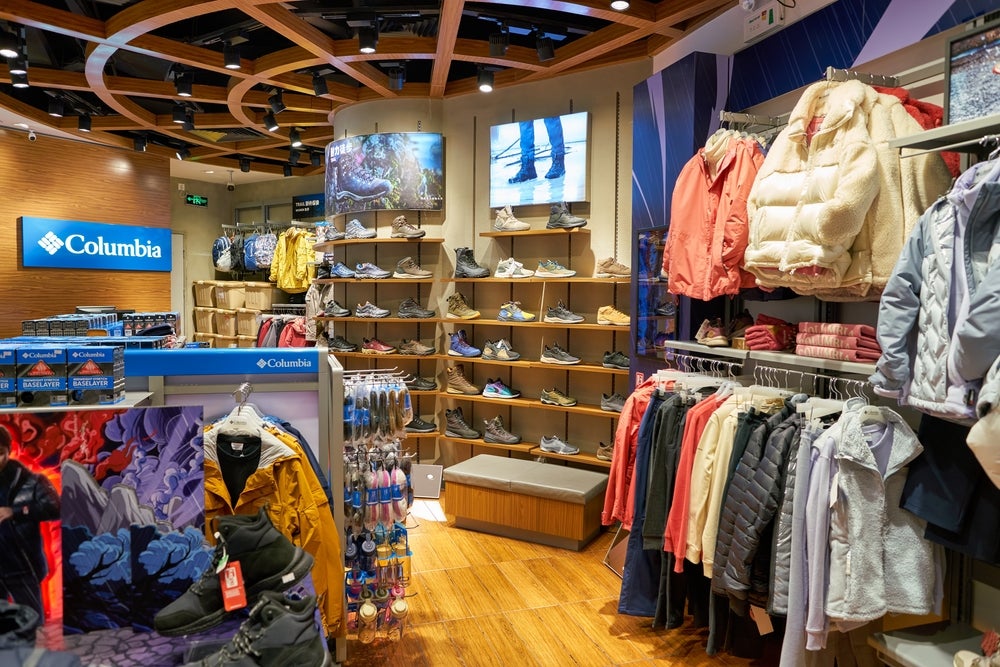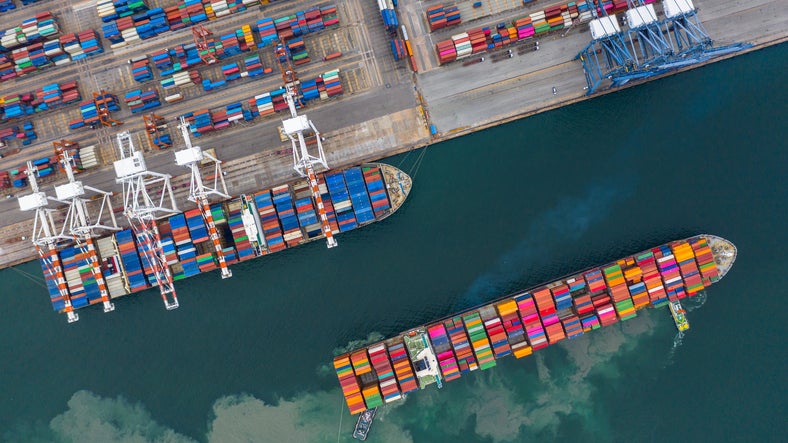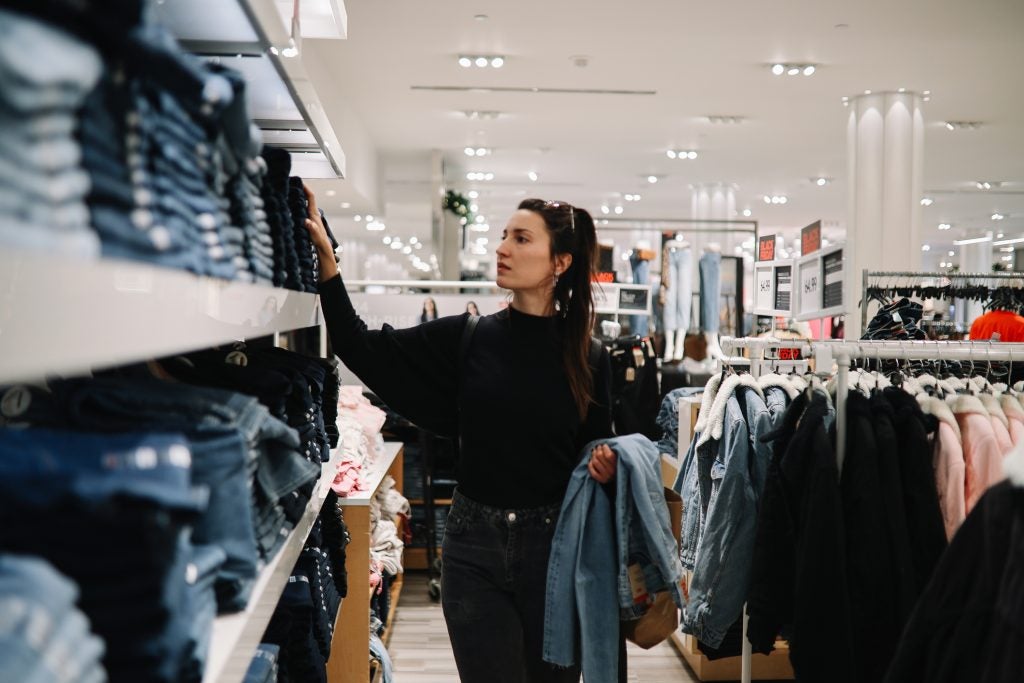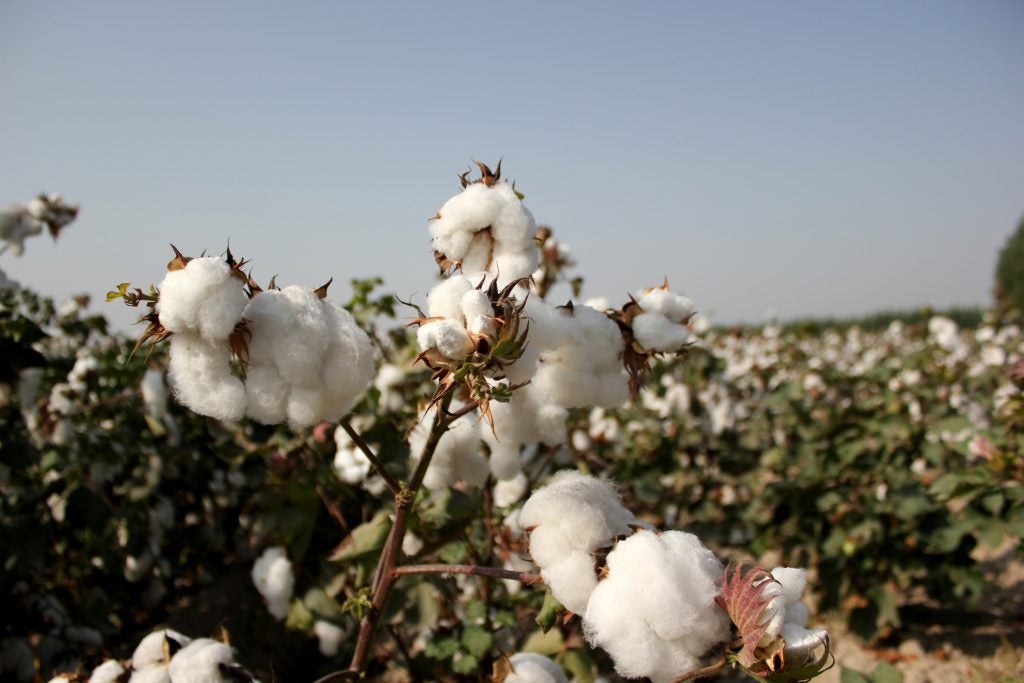This week's top apparel-related datasets ranged from the state of the outdoorwear market to 2027 and luxury market to 2025 to the high cost of living's impact on UK January clothing sales and the VF Corp's Q3 results.
Outdoorwear sector needs stronger execution
GlobalData's report on the Outdoor Sportswear Market to 2027 shows the sector saw a huge spike in its growth rate of 21% in 2021 thanks to the pandemic and many consumers wanting clothing for outdoor activities due to lockdowns prohibiting indoor sports.
The sector is expected to continue growing at a more conservative rate to 2027, but the start of 2024 is proving to be a challenging one for some of its main brands.
Columbia Sportswear revealed it is banking on an aggressive cost-cutting drive in the near term as it embarks on a mission to return to profitability. Net income for the year sank to $251.4m from $311.4m.
GlobalData analyst Neil Saunders told Just Style the company's results were reflective of a general “period of weakness” that the outdoor industry is going through “after growing rapidly during the pandemic and the following years”.
Superdry's 23.5% fall in group revenue during the first half of the year was said to be impacted by a challenging consumer retail market and unseasonable weather.
However, GlobalData apparel analyst Pippa Stephens argued it has been struggling for several years due to not keeping up with consumers' ever-changing preferences.
Zegna Group taps luxury footwear sector's growing potential
Luxury footwear is set to grow at a CAGR of 10.9% and reach a value of
$31.8bn by 2025, according to GlobalData's Global Luxury Apparel Market & Forecasts to 2025 with the entire luxury market expected to be worth $175.8bn.
Women’s footwear and accessories are expected to grow the most by 2025, driven by luxury trainers and popular handbags.
The plant is scheduled to be completed by the end of 2026 and will expand the company's production capacity and allow for further focus on promoting and enhancing Italian craftsmanship.
High cost of living hits UK clothing sales
The British Retail Consortium has reported non-food sales, which includes clothing, decreased 1.8% year-on-year over the three months to January, against growth of 2.9% in January 2023.
BRC noted this to be steeper than the 12-month average decline of 0.5% for January with non-food on the decline year-on-year.
Credit: BRC
BRC's chief executive Helen Dickinson explained easing inflation and weak consumer demand led retail sales growth to slow. The January sales helped to boost spending in the first two weeks but this did not last throughout the whole month.
Linda Ellett, UK head of consumer markets, leisure & retail at KPMG added: "It remains a difficult environment for retailers facing into significant downward pressures on demand, a strong promotional environment and uncertainty hitting supply chains due to rising geopolitical tensions.
VF Corp Q3 Americas revenue down 25%
Credit: VF Corp
This has prompted the company to consider a strategic review of its portfolio of brands and GlobalData retail analyst Alice Price warns the heart of the problem is the "waning appeal of its core brands".
VF Corp president and CEO Bracken Darrell admitted the company's top-line performance was disappointing.
He explained the company is continuing to execute its Reinvent transformation programme aimed at brand-building and boosting operating performance.
One of the initial priorities is to improve North America results, deliver its Vans brand turnaround, reduce costs and strengthen its balance sheet.
However, Price suggested a brand cull would enable VF Corp to focus its attention on its core brands and help steer them back to relevance.
Major fashion players praised for environmental data exposure
US fashion conglomerate Kering and Austrian speciality fibre company Lenzing were named within the 2% of companies recognised by the Carbon Disclosure Project 2023. The two companies received an 'A' rating across all three data questionnaires, which were based on climate change, forests and water security.
CDP noted that, despite a 24% increase in disclosures through its platform last year, companies providing the highest quality environmental data remain a small minority.
A-List companies were those with the most accurate picture of their environmental impacts and were cited as being best equipped to take climate and nature-positive actions to mitigate them.
Other apparel companies that made it to the A-list included Hong Kong clothing manufacturer Crystal International Group Limited, Japan fashion conglomerate Fast Retailing Co. Ltd. Spanish fashion conglomerate Inditex, French luxury companies LVMH and Moncler, and German sports brand Puma.
CDP explained it regularly raises the bar for what qualifies as 'environmental leadership' so companies achieving an 'A' are by no means at the end of their environmental journey.
















